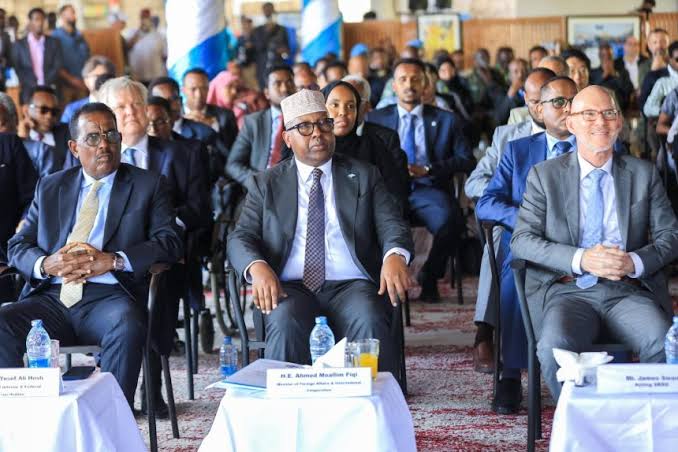Facebook Twitter (X) Instagram Somali Magazine - People's Magazine
The United Nations has initiated a new phase of engagement in Somalia with the commencement of the United Nations Transitional Assistance Mission in Somalia (UNTMIS) on January 2, 2025. This marks a significant step in supporting Somalia’s journey toward self-reliance and stability as UNTMIS succeeds the United Nations Assistance Mission in Somalia (UNSOM).
A New Chapter for Somalia
The UN Secretary-General’s Acting Special Representative for Somalia, James Swan, announced the transition, emphasizing the mission’s collaborative approach. “UNTMIS reaffirms the UN’s commitment to the Government and people of Somalia in building a stronger country and better future. We look forward to working together as partners throughout this planned two-year transitional mission,” said Swan.
UNTMIS was established following the United Nations Security Council’s adoption of Resolution 2753 on October 30, 2024. The mission is designed to align with Somalia’s priorities, focusing on transferring essential functions to Somali institutions, the UN Country Team, and other stakeholders.
Focus Areas of UNTMIS
UNTMIS will concentrate on several critical areas that are vital to Somalia’s progress:
1. Strengthening Governance: Supporting Somali institutions in achieving robust governance structures.
2. Security Transition: Facilitating the transfer of security responsibilities to Somali forces while ensuring stability.
3. Economic Development: Assisting with the development of sustainable economic frameworks.
4. Humanitarian Support: Addressing immediate and long-term humanitarian needs across the country.
This phased transition is expected to enhance national ownership and reinforce Somalia’s capacity to manage its development independently.
Key Challenges and Opportunities
Somalia faces a range of challenges, including political instability, security threats, and economic hardships. The new mission aims to address these issues by promoting self-reliance and fostering partnerships between Somali institutions and international stakeholders.
“UNTMIS represents an opportunity for Somalia to take greater control of its future, with the support of a committed international community,” Swan added.
A Two-Year Plan for Progress
UNTMIS is planned as a two-year mission, during which its mandate will be gradually phased out to allow Somali institutions to take full control of governance and development. This approach reflects a broader shift in the international community’s engagement with Somalia, moving from direct intervention to capacity building and local empowerment.
Global and Regional Implications
The success of UNTMIS could have significant implications for the Horn of Africa and beyond. A stable Somalia is essential for regional security and economic development, particularly in light of ongoing threats from militant groups and piracy.
The mission also aligns with the UN’s broader objectives of promoting peace and sustainable development in conflict-affected regions.
Collaborative Efforts with Somali Institutions
UNTMIS will work closely with Somali institutions to ensure a smooth transition and effective implementation of its mandate. This collaboration will be critical in building trust and ensuring that the progress made during the mission is sustainable.
Looking Ahead
As UNTMIS begins its operations, the eyes of the international community are on Somalia. The mission’s success could serve as a model for other countries transitioning from international assistance to national self-reliance.
The United Nations’ commitment to Somalia remains steadfast, with UNTMIS serving as a key vehicle for achieving long-term stability and prosperity in the country.
This new mission symbolizes hope and determination for Somalia as it continues its journey toward a more secure and prosperous future.

